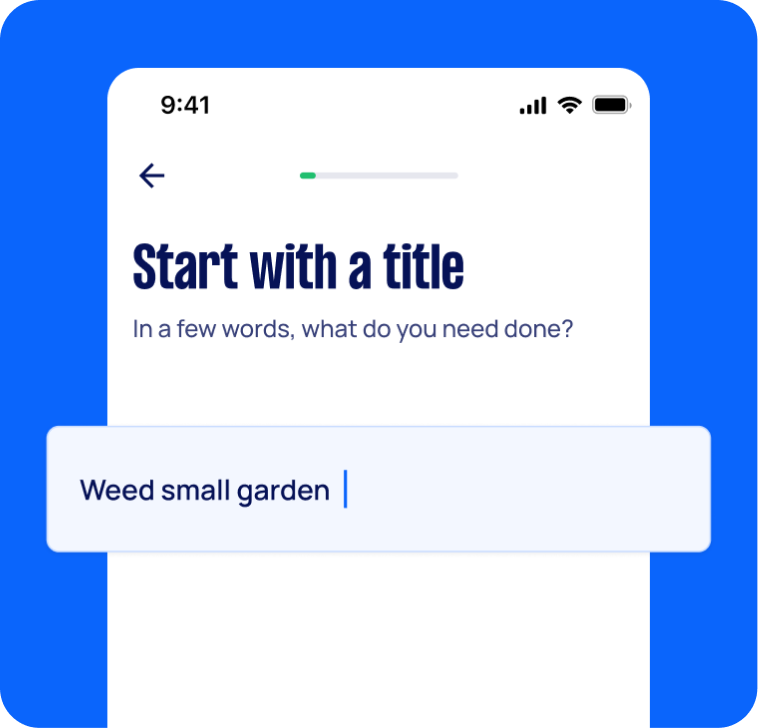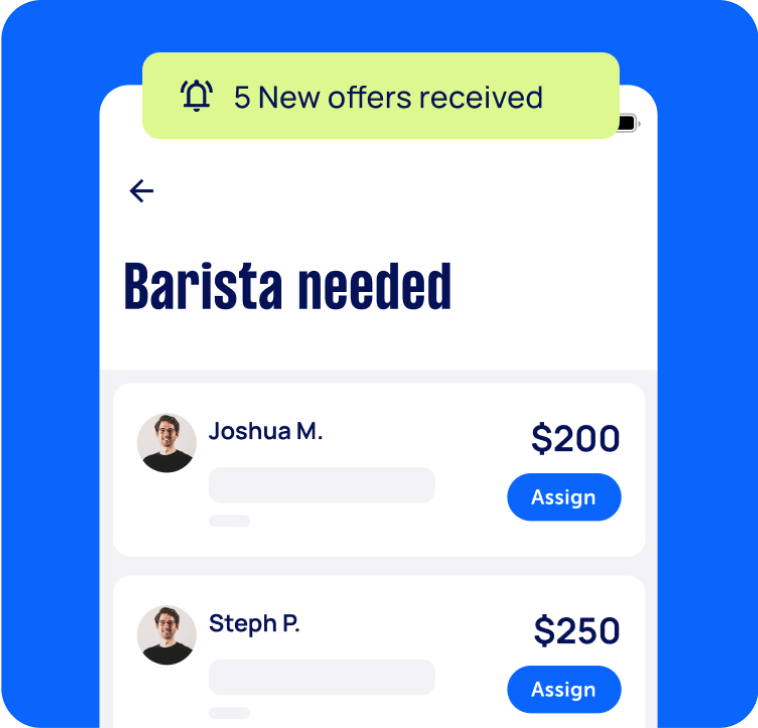Find a professional Italian tutor in Perth
Fill in a short form and get free quotes for local Italian tutors in Perth
Excellent rating - 4.3/5 (10900+ reviews)
Looking for Italian tutors?
- Italian for beginners
- History of Italy
- Modern Italian
- C1 level Italian
- … or anything else
Recent Italian Tutor tasks in Perth
Tutoring in Italian language from a native Italian speaker
$46
Mosman Park WA, Australia
30th Sep 2024
Assisi pronunciation, reading , listening conversation skills in Italian
Italian language tutor
$60
Western Suburbs WA, Australia
5th Sep 2024
Looking for a native Italian speaker for tutoring in beginner level Italian Not sure of budget start at $60 per hour
Italian tutor wanted
$150
Perth WA, Australia
24th Jan 2023
Hi, I am seeking an Italian tutor for ongoing studies. Starting from beginner level. Am available 3/5 hours per week - ideally would like this to be in person. - Due date: Flexible
Italian beginner lessons
$700
Leederville WA, Australia
7th Mar 2022
Going to Italy in May and would love to be able to speak basic Italian: need a native teacher
What is Airtasker?

Post your task
Tell us what you need, it's FREE to post.

Review offers
Get offers from trusted Taskers and view profiles.

Get it done
Choose the right person for your task and get it done.
- Get it done now. Pay later.
- Repay in 4 fortnightly instalments
- No interest
- Available on payments up to $1,500
Related Services near me
What do Italian lessons include?
Italian lessons involve having your tutor teach you the Italian language basics, from words and simple phrases to advanced conversations. Italian private lessons can be held at home or wherever you prefer! You can also book Italian lessons online if that’s more convenient for you. Here are a few things you can learn when you book an Italian tutor near you:
Italian lessons for beginners
Your private Italian tutor can start by teaching you the basics of the language including the most common and useful Italian words, phrases, and sentences like “ciao” (hello/goodbye), “buongiorno” (good morning), “buonasera” (good evening), and “buonanotte” (good night). Here, you’ll get to understand proper grammar and vocabulary, verb conjugation, and other technical aspects of the Italian language.
To give yourself an idea of how native Italian speakers sound, you can hire a translator who can interpret modern language materials to speed up your learning.
GCSE Italian
When you’re taking GCSE Italian, you can take your language learning up a notch by getting a GCSE Italian tutor! In-person or online Italian lessons can help you develop your listening, reading, speaking, and writing skills that are useful, especially if you’re planning to pursue further language or cultural studies. If you’re interested in living or working in Italy or learning more about Italian culture in general, getting private GCSE Italian lessons near you can undoubtedly be beneficial!
As an additional learning resource, get someone to create written worksheets or custom online courses that you can practise on!
A-level Italian
If you find that you excel in the Italian language and plan to focus on that strength, taking A-levels on the subject is a wise decision! No need to book group classes and overspend on Italian tuition, since it’s easy to find an A-level Italian tutor on Airtasker who can provide you with one-on-one lessons and give you focused attention. They can help you prepare for your certification exam by testing your competency in listening, comprehension, speaking, and your ability to read and respond to various Italian texts.
Since getting a GCSE or A-level education is a stepping stone to your desired career, how about hiring a life coach to help you set goals and identify which jobs are right for you based on your skills?
Italian culture and practical lessons
Besides the language, learning about the Italian culture will surely come in handy, especially if you plan to travel to Italy or any Italian speaking country. You need to know the technicalities of the language and specific instances of when and how to use them in day-to-day conversation. After all, learning a language is a holistic process, and besides recognizing words and phrases, it’s about knowing how the language works in a cultural context.



